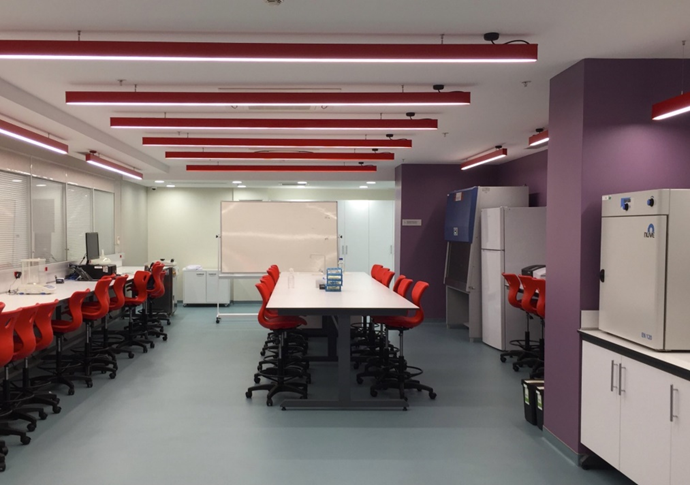What is Bioengineering (Turkish) Master's Degree Program?
Bioengineering is a field that uses basic sciences such as mathematics, physics and chemistry, engineering principles and methods to solve problems in biological systems with engineering approaches.
The aim of the Bioengineering (Turkish) Master's Program is basically to contribute the raising of high-level bioengineers who can lead studies in this field by providing the necessary knowledge to individuals who will conduct research in the field of bioengineering.
Who can apply to the Bioengineering (Turkish) Master's Degree Program?
Students who graduated from departments of related universities such as bioengineering, genetics and bioengineering, biology, molecular biology and genetics, health sciences, medicine, pharmacy, veterinary medicine, mathematics, physics, chemistry, materials engineering, chemical engineering, mechanical engineering, electrical-electronics engineering, food engineering, engineering sciences, chemical and biological engineering can apply to the Bioengineering (Turkish) Master's Degree Program.
What are the courses taken in the Bioengineering (Turkish) Master's Degree Program?
In the Bioengineering (Turkish) Master's Program, in addition to the compulsory courses Fundamentals of Bioengineering I, Fundamentals of Bioengineering II, Applied Biostatistics and Research Methods and Scientific Ethics, which students must take in order to learn the basic information, a wide-ranging curriculum has been created including elective courses such as Nanobioengineering, Mathematical Methods in Bioengineering, Pharmaceutical Biotechnology, and Programming for Bioengineering that they can choose for the field they want to work in.
In order to put the theoretical knowledge, they have acquired into practice, students have the opportunity to do practical work in the bioengineering laboratory, clinical biochemistry and toxicology laboratory, clinical pharmacogenetics laboratory, neuropsychology and psychology laboratory, neuroimaging laboratory, electrophysiological imaging laboratory, radiodiagnostic imaging and brain stimulation laboratory at the university.
What are the working areas of Bioengineering (Turkish) Master’s Degree graduates?
Individuals who have completed the Bioengineering (Turkish) Master's Program; can work in fields such as pharmaceuticals, environment, agriculture and biomedicine, as well as working as both researchers and academicians in private diagnostic laboratories, public hospital's genetic laboratories, private universities or state universities.
Within the scope of the master's program, it is aimed to contribute to the development of the bioengineering sector both in Turkey and on international platforms by encouraging students to establish university-industry cooperation and their own bioengineering companies in order to realize innovative projects to contribute industry and production.










